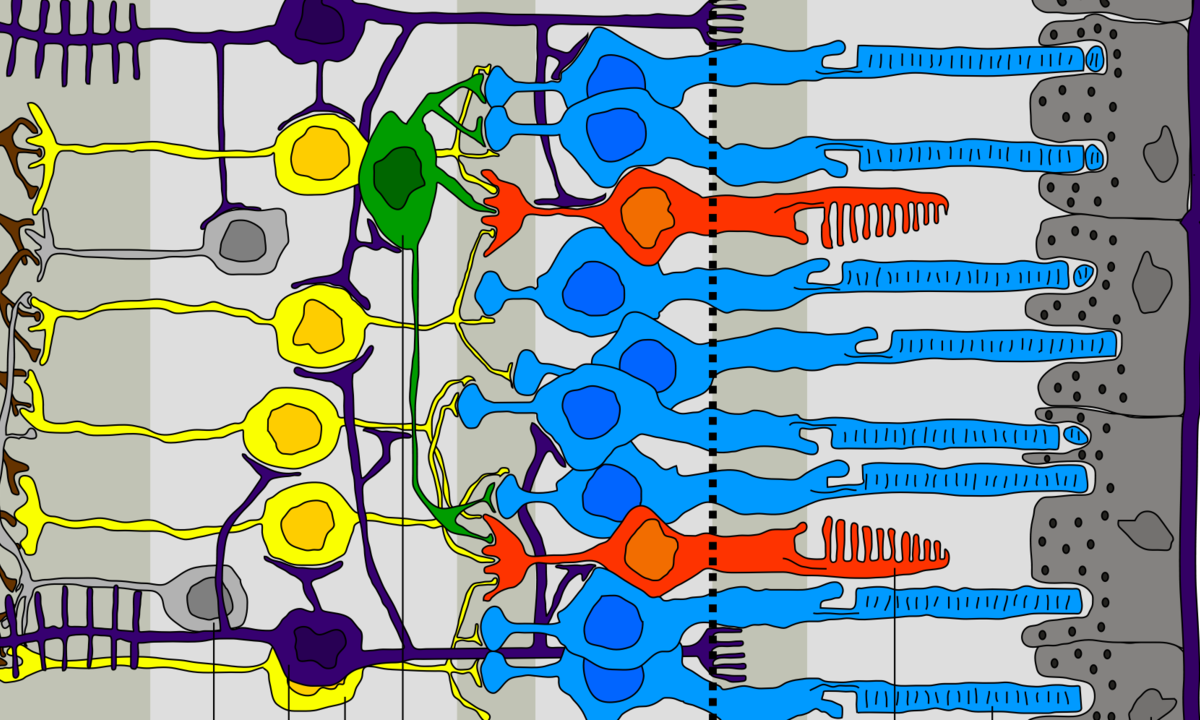Retinitis Pigmentosa: European Orphan Medicinal Product Designation for KIO-301
Kiora Pharmaceuticals has announced it has received Orphan Medicinal Product Designation from the European Medicines Agency (EMA) for the treatment of a group of inherited retinal diseases (IRDs) that include retinitis pigmentosa (RP), choroideremia and more. The broad designation covers KIO-301, a small molecule photoswitch, for the treatment of non-syndromic rod-dominant retinal dystrophies.

This classification of dystrophies, in simplified terms, refers to rare diseases from underlying genetic mutations resulting in predominantly and primarily the degeneration of rod photoreceptors. In RP, which today has no approved therapeutics, rods degenerate first followed by degeneration of cone photoreceptors. This degenerative process causes partial or severe loss of vision and may result in complete blindness.
"This designation provides Kiora and our development and commercialization partner, Théa Open Innovation, with at least ten years of market exclusivity, exclusive of patent protection, in Europe. This is in addition to other regulatory and market access benefits," said Eric Daniels, M.D., Chief Development Officer of Kiora Pharmaceuticals in a press release. "With Orphan Drug Designation already granted in the U.S., KIO-301 is well positioned for expediated regulatory guidance, review, and market exclusivity in two major marketplaces. We are finalizing the design and planning to initiate the Phase 2 trial of KIO-301 (ABACUS-2) later this year."
The European Union provides Orphan Medicinal Product Designation to incentivize drug developers to bring products for rare diseases to market that may otherwise not be developed. The designation is granted after a critical review and only if a drug candidate meets specific criteria, which incudes but is not limited to the following:
- The investigational therapy is medically plausible and intended to treat a serious or life-threatening disease
- The condition affects no more than 5 in 10,000 people in the EU
Kiora's upcoming ABACUS-2 trial of KIO-301 for vision restoration in individuals with RP, will be a multi-center, double-masked, randomized, controlled, multiple-dose study.
KIO-301 ((E)-2-((4-((4-Benzyl(ethyl)amino)phenyl)diazinyl)phenyl)amino-N,N,N-triethyl-2-oxoethan-1-aminium chloride) is a small molecule photoswitch designed to selectively confer light-sensing capabilities to retinal ganglion cells following the degeneration of photoreceptors in inherited retinal diseases like retinitis pigmentosa. This represents a novel, gene-mutation agnostic, non-cell or gene therapy approach to addressing vision loss in IRDs.
In January 2024, Kiora, along with Théa Open Innovation (TOI), a sister company of the global ophthalmic specialty company Laboratoires Théa (Théa), agreed to an exclusive worldwide co-development and commercialization agreement, excluding Asia, for KIO-301 in the treatment of retinal diseases.
Kiora Pharmaceuticals (Encinitas, California) is a clinical-stage biotechnology company developing and commercializing products for the treatment of orphan retinal diseases.
KIO-301 is being developed for the treatment of retinitis pigmentosa, choroideremia, and Stargardt disease. It is a molecular photoswitch that has the potential to restore vision in patients with inherited and/or age-related retinal degeneration.
KIO-104 is being developed for the treatment of posterior non-infectious uveitis. It is a next-generation, non-steroidal, immuno-modulatory, and small-molecule inhibitor of dihydroorotate dehydrogenase.
Source: Kiora Pharmaceuticals